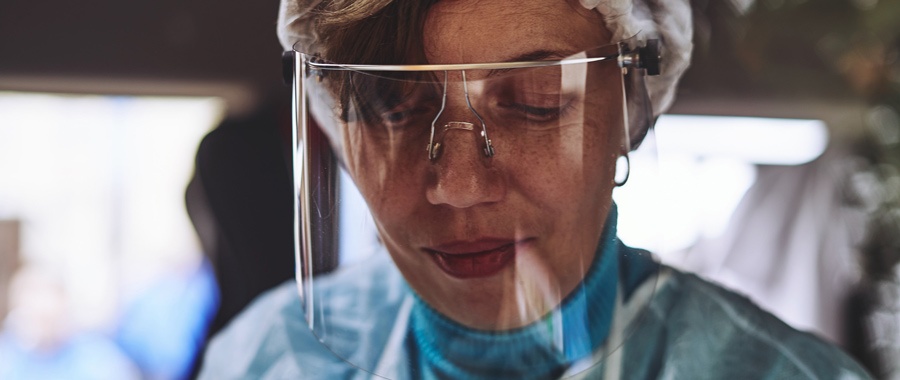In today’s world, the term “heroic” often seems synonymous with those who undertake extraordinary feats, especially in times of crises. However, when we label individuals as heroic—particularly essential workers—we inadvertently gloss over the systemic inequities that shape their realities. This essay seeks to unravel the complexities of justice as posited within the Bahá’í teachings, challenging the simplistic notion that calling someone a hero equates to the establishment of equity. By exploring deeper dimensions of justice and equity, we can foster a more nuanced understanding of our moral obligations to others.
At first glance, one might wonder: if we exalt those who serve us relentlessly in challenging times, is it not an acknowledgment of their sacrifices? This perspective, however, necessitates scrutiny. To declare the actions of essential workers as merely heroic can inadvertently diminish the structural impediments they face—elements that perpetuate cycles of inequality and disenfranchisement. Can we then claim a just society when the realities of many are couched in the glorification of individual heroism rather than the dismantling of systemic barriers?
To delve deeper into these ideas, it is essential first to elucidate what is meant by justice within the context of the Bahá’í framework. Justice is not merely a passive state of balance or fairness; it is an active, dynamic pursuit of equality that transcends societal constructs. According to Bahá’í teachings, justice manifests itself in various forms—social, economic, and spiritual—each intertwining to create a holistic vision of humanity. Thus, the simplistic accolade of heroism can become a distraction from the broader quest for societal equity.
Moreover, the notion of equity in Bahá’í discourse is multi-faceted. It encompasses not only the distribution of resources and opportunities but also the recognition of individual dignity, worth, and potential. This involves an understanding that every person deserves the chance to flourish, free from the shadows of societal bias. By emphasizing heroism, we risk creating a dichotomy where the “hero” or “savior” is separated from those who, despite their challenges, are entitled to the same acknowledgment of their humanity and needs.
One may argue that elevating certain individuals to the status of heroes serves to inspire the community at large. Indeed, inspiration is vital for social progress. However, it raises an essential concern: does such inspiration lead to meaningful action toward structural change, or does it merely placate us with a narrative of admiration that bears no fruits of equality? To reconcile this tension, one must consider how the Bahá’í principle of consultation can be applied to justice. Engaging in open dialogues, where individuals share their experiences, challenges, and insights, cultivates a collective understanding that goes beyond the glorification of individual actions.
Another critical aspect of Bahá’í teachings is the emphasis on community as a vehicle for justice. It posits that true equity cannot be achieved in isolation; rather, it arises from collective action driven by compassion and mutual respect. The emphasis on collective rather than individual heroism invites a re-evaluation of our societal norms. How can we cultivate a culture where individuals are encouraged not only to act heroically but to work collaboratively, addressing the underlying societal issues that necessitate such heroism in the first place?
Additionally, the concept of service thrives within the Bahá’í framework, wherein the act of serving others is paramount to fostering justice. Service should not be relegated to moments of crisis alone; rather, it must be ingrained in the very fabric of our daily interactions and societal structures. This raises an inquisitive challenge: how can we redefine service in our communities to ensure that it addresses the systemic inequalities that persist? By shifting the narrative from individual heroism to collective service, we acknowledge that everyone has a role in making transformative changes within society.
Furthermore, the teachings advocate for the importance of education as a vital instrument for achieving equity. Empowering individuals with knowledge cultivates capacities that pave the way for justice. An educated populace is better equipped to identify injustices, advocate for change, and reject the commercialized narrative of heroism which often overlooks the institution’s moral fabric. How can educational initiatives within the Bahá’í community be designed to promote awareness about systemic inequities while also fostering a sense of shared responsibility and community service?
In conclusion, while it is tempting to exalt essential workers as heroes in the face of adversity, this narrative often diverts attention away from the pressing need for structural reforms and a more profound commitment to justice. In striving for a truly equitable society, it is imperative to find ways to celebrate contributions without losing sight of the larger systemic challenges that invite those contributions. The Bahá’í teachings provide a roadmap, urging communities to engage in collective action, dialogue, and continuous learning, thereby reconceptualizing what it means to be heroic. By embracing this challenge and reorienting our perspectives, we can create a society that not only recognizes heroism but one that embodies the principles of justice and equity for all.
